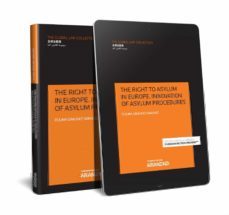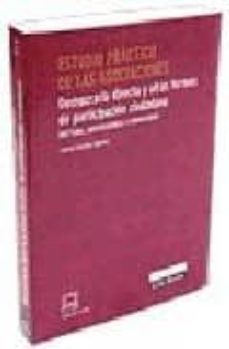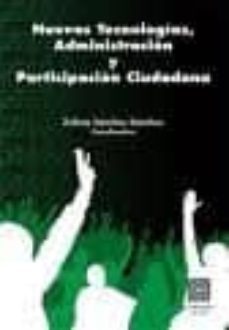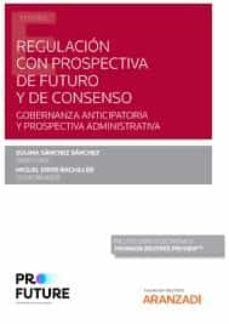Imprescindibles
Ficción
No Ficción
Ciencias y tecnología Biología Ciencias Ciencias naturales Divulgación científica Informática Ingeniería Matemáticas Medicina Salud y dietas Filología Biblioteconomía Estudios filológicos Estudios lingüísticos Estudios literarios Historia y crítica de la Literatura
Humanidades Autoayuda y espiritualidad Ciencias humanas Derecho Economía y Empresa Psicología y Pedagogía Filosofía Sociología Historia Arqueología Biografías Historia de España Historia Universal Historia por países
Infantil
Juvenil
#Jóvenes lectores Narrativa juvenil Clásicos adaptados Libros Wattpad Libros Booktok Libros de influencers Libros de Youtubers Libros Spicy Juveniles Libros LGTBIQ+ Temas sociales Libros ciencia ficción Libros de acción y aventura Cómic y manga juvenil Cómic juvenil Manga Shonen Manga Shojo Autores destacados Jennifer L. Armentrout Eloy Moreno Nerea Llanes Hannah Nicole Maehrer
Libros de fantasía Cozy Fantasy Dark academia Hadas y Fae Romantasy Royal Fantasy Urban Fantasy Vampiros y hombres lobo Otros Misterio y terror Cozy mistery Policiaca Spooky Terror Thriller y suspense Otros
Libros románticos y de amor Dark Romance Clean Romance Cowboy Romance Mafia y amor Romance dramatico Romcom libros Sport Romance Otros Clichés Enemies to Lovers Friends to Lovers Hermanastros Slow Burn Fake Dating Triángulo amoroso
Cómic y manga
Novela gráfica Novela gráfica americana Novela gráfica europea Novela gráfica de otros países Personajes, series y sagas Series y sagas Star Wars Superhéroes Cómics DC Cómics Marvel Cómics otros superhéroes Cómics Valiant
eBooks
Literatura Contemporánea Narrativa fantástica Novela de ciencia ficción Novela de terror Novela histórica Novela negra Novela romántica y erótica Juvenil Más de 13 años Más de 15 años Infantil eBooks infantiles
Humanidades Autoayuda y espiritualidad Ciencias humanas Economía y Empresa Psicología y Pedagogía Filosofía Historia Historia de España Historia Universal Arte Cine Música Historia del arte
Ciencia y tecnología Ciencias naturales Divulgación científica Medicina Salud y dietas Filología Estudios lingüísticos Estudios literarios Historia y crítica de la Literatura Estilo de vida Cocina Guías de viaje Ocio y deportes
Zulima Sánchez Sánchez
Recibe novedades de ZULIMA SANCHEZ SANCHEZ directamente en tu email
Filtros
Del 1 al 5 de 5
ARANZADI 9788491971214
In recent years Europe has faced one of the greatest migration crises since World War II. Its humanitarian effects have been devastating, but there has also been a salutary lesson for Europe to respond by adopting a series of measures intended to modify institutions traditionally linked to the sovereignty of States, such as the Right to Asylum and its legal procedure, which represents salvation for refugees but also for European migration policy. These transformations have defined a new scheme with regards to border control, the fight against illegal migration and trafficking in human beings, and the rights of asylum seekers, that is to say, of those who seek refuge in Europe. The European Agenda on Migration 2015 sets the trend for present and future reforms that countries should undertake to deal with this situation and similar ones that may occur in the future. With shared competencies between the Union and the States themselves, the challenge represents a complex balance between the interest of the States, the migration policy of the Union and respect for Human Rights. Undoubtedly, despite the fact that many countries have resisted, the most viable alternative is to provide global solutions. The work also focuses on the impact that these reforms will have on the Right
Ver más
Tapa blanda
LEX NOVA 9788484065425
La autora, profesora de Derecho Administrativo de la Universidad de Salamanca, analiza la participación ciudadana en el ámbito local con numerosas propuestas para lograr una actuación directa en la toma de decisiones administrativas y políticas. Todo ello teniendo en cuenta las modificaciones introducidas por la llamada "Ley de Grandes Ciudades" (Ley 57/2003). El libro, una auténtica guía para la participación ciudadana, incluye más de 60 formularios muy útiles para cualquier ciudadano que desee ejercer su derecho de participación directa o para la constitución, funcionamiento y disolución de una asociación; y un CD-ROM con formularios y el texto íntegro de la jurisprudencia más relevante.
Ver más
Tapa blanda
ARANZADI 9788411241151
Administrative law has the challenge to protect rights without a time and general. Regulation and administrative activity, in its pursuit of the general interest, cannot renounce the creation of spaces for the exercise of executive power in a collaborative or participatory manner. Considering the possible future means adapting the rules and the activity of the administration to the current reality, without compromising the actions of governments in the future in order to respect international consensus, such as the green pact and sustainable economic recovery. Translated with www.DeepL.com/Translato r (free version) Esta situacion es objeto de reflexion en esta obra colectiva que constituye la primera reflexion realizada por los investigadores del proyecto de investigacion I+D+I financiado por el Ministerio de ciencia e innovacion, Gobierno de España con el titulo: Por un consenso de futuro sostenible: Gobernanza anticipatoria y Prospectiva administrativa (PROFUTURE) PID2020-116401GB-I00 Foresight offers a range of experiences for a practical application of foresight to administrative planning and policy development. These tools are based on the bureaucratic reality and the competences of public administrations. As a consequence of the health, economic and energy crises, administrations will have to face planning and decision-making for recovery. Are they prepared? Administrations make decisions with models that do not foresee their impact on the future. Rather, they react to external situations and problems that are precipitated and the impact analysis is often identified a posteriori. Public administrations make decisions based on dialogues framed in rules and procedures designed only to solve the present, but should allow action in various future scenarios. This book is the result of a multidisciplinary and international research that aims to analyze and use techniques that already exist in other countries to anticipate situations by incorporating the knowledge of science and its differents predictions of the future. This techniques should count on consensus dialogues and citizen participation to be generated by public administrations and executive power. This group of researchers from United Kingdom, France, Italy, Sweden, Germany, Spain and Brazil presents reflections and mechanisms that will make a new form of legal production of rules and policy plans to incorporate and impact the future, through a consensus debate with scientists, experts, technicians, companies and individuals, based on Europe Next Generation. Foresight is applied to administrative regulation and decision making process, ecological transition, urban tourism and transport planning, defense, gender, environmental and migratory crisis, from a legal and multidisciplinary analysis.
Ver más
Tapa blanda
COMARES 9788498366464
Otros
ARANZADI 9788411241212
El Derecho administrativo debe permitir la protección sostenible de derechos sin un compromiso temporal y bajo el hilo conductor de interés general como motivación de su razón de ser. La regulación y la actividad administrativa, en su busqueda del interes general, no pueden renunciar a crear espacios de ejercicio de poder ejecutivo de manera colaborativa o participativa. Considerar el futuro posible significa adecuar las normas y la actividad de la administracion a la realidad actual, sin comprometer el actuar de gobiernos en el futuro para respetar consensos internacionales, como el pacto verde y la recuperacion economica sostenible. Esta situacion es objeto de reflexion en esta obra colectiva que constituye la primera reflexion realizada por los investigadores del proyecto de investigacion I+D+I financiado por el Ministerio de ciencia e innovacion, Gobierno de España con el titulo: Por un consenso de futuro sostenible: Gobernanza anticipatoria y Prospectiva administrativa (PROFUTURE) PID2020-116401GB-I00 La prospectiva y las tecnicas de prevision o foresight ofrecen un elenco de experiencias para aplicar en la practica la prospectiva a la planificacion administrativa y a la elaboracion de normas. Estas herramientas parten de la realidad burocratica y el funcionamiento de la
Ver más
Tapa blanda
Del 1 al 5 de 5



























